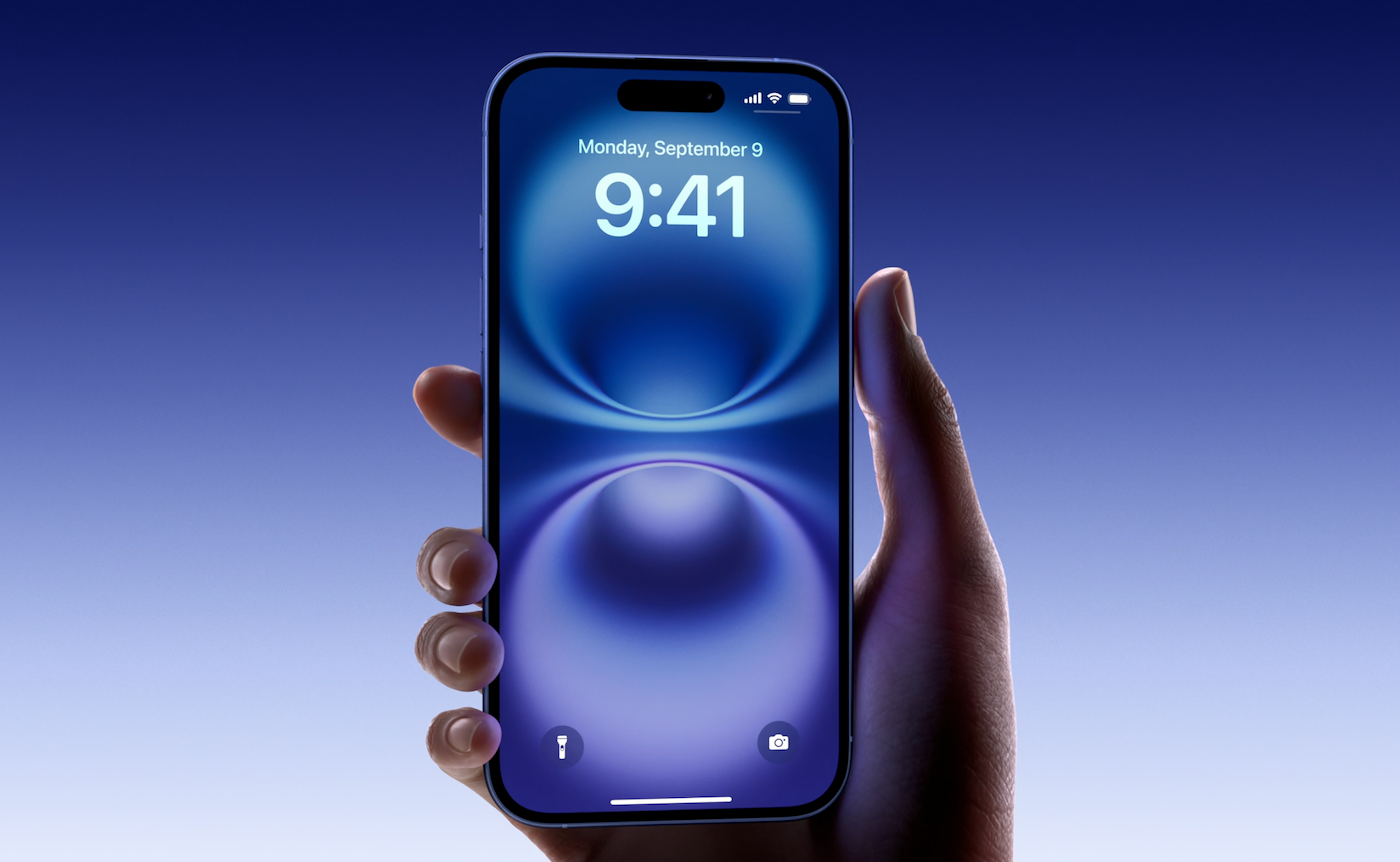Apple revealed four models of the upcoming iPhone 16 on Sept. 9, all of which will be able to run the generative Apple Intelligence when iOS 18.1 becomes available later this year. The four models are:
- iPhone 16.
- iPhone 16 Plus.
- iPhone 16 Pro.
- iPhone 16 Pro Max.
Each will be available for preorder on Sept. 13 and on sale Sept 20.
iPhone 16 rearranges the camera controls
The latest iPhone’s designs aren’t a major departure from previous iterations, with Apple perhaps banking on generative AI features to set the next-generation smartphones apart. iPhone 16 offers gold, ultramarine, and pink as new colors. The iPhone 16 is 6.1 inches across, while the iPhone 16 Plus is 6.7 inches.
A side button controls camera features, giving the iPhone 16 a classic camera stance when held horizontally. The camera control button also unlocks photo-editing features.
The Photos app builds on the iPhone 15’s photo sorting layout, grouping together pictures of specific people or events.
iPhone 16 starts at $799, and iPhone 16 Plus starts at $899.
iPhone 16 Pro
The premium models of the iPhone 16 come with a larger (6.3” or 6.9”) display. For those still mourning the compact iPhone 5, the news of a larger size may not be encouraging — but Apple has kept the premium phones impressively thin.
The A18 Pro chip brings a 16-core neural engine for faster performance of generative AI workloads and improves graphics performance. It can handle professional video capture and encoding — including slow motion and 4K — and has ultra high-resolution and telephoto camera lenses.
Apple Intelligence provides generative AI capabilities
Apple Intelligence on iPhone is enabled by the more powerful and efficient A18 chip, created specifically for iPhone 16. However, you’ll need to wait for a software update, with Apple Intelligence arriving with iOS 18.1 next year. Siri users may be able to use natural language sooner than that. As Apple announced in June, Apple Intelligence will enable:
- Summarize emails and notifications.
- Prioritize notifications.
- Generative and summarization writing tools for email, messages, and more.
- Create new emoji.
- Generate original pictures in Image Playground.
- Search for and sort photos using natural language prompts.
- Stitch images and videos together into movies.
- Visual intelligence, with which your phone can detect information about scenes seen through the camera.
- Cleanup and generative editing of photos.
The AI models used for many of these tasks are made by Apple and run on the phone. For more intensive tasks, some AI tasks may be run on private clouds to tap into OpenAI’s models. Apple emphasized that the data used in these private clouds is never shared with the company and that the data centers used in these operations run on renewable energy.
SEE: Is Apple’s iCloud keychain right for your business?
Additionally, Siri will be able to respond to more natural prompts or catch what you said if you stumble over your words.
These features will be available in beta later this year in U.S. English, followed by other variants of English later this year and additional languages in 2025.
Apple announces four new version of AirPods
Apple showed several new models of AirPods for 2024:
- AirPods 4.
- AirPods 4 with Active Noise Cancellation.
- AirPods Pro 2.
- AirPods Max.
AirPods 4 run on the H2 chip and a new acoustic architecture for better audio. Spatial audio brings surround sound, while Siri and machine learning make calls clearer and let you respond to some Siri questions with a nod or shake of the head. Music and calls can be started or ended with a button on the stem.
Active Noise Cancellation means the AirPods will automatically quiet down your music or media when the devices detect you’re talking.
Pricing is as follows:
- $129 for AirPods 4.
- $179 for AirPods 4 with Active Noise Cancellation.
- $249 for AirPods Pro 2.
- $549 for AirPods Max.
Apple Watch Series 10 is larger and thinner
The Apple Watch Series 10’s design features a relatively large screen and thin edges (9.7 millimeters). The wide-angle OLED display has been optimized for readability and larger font size. For business, that means easier-to-read notifications, and faster replies to urgent messages.
The case comes in a new color: jet black, made from aluminum. The Apple Watch Series 10 will come in rose gold or silver.
Users can play media or music directly through the watch’s speaker, as opposed to needing AirPods. Aluminum cases weigh up to 10% less than previous generations, and a new titanium case option replaces stainless steel for a 20% reduction in weight compared with the stainless steel Series 9.
The new watch reaches an 80% charge in just 30 minutes, Apple says.
Inside the watch is the S10 chip, with a 4-core neural engine for machine-learning tools such as dictation, automatic workout detection, fall detection, or Siri. Neural networks are also used to suppress background noise in phone calls. Translation will also be available.
Apple CEO Tim Cook emphasized the health applications, such as heart monitors and crash detection. Apple Watch Series 10 has been validated to detect sleep apnea — a new addition to the detailed suite of health-monitoring capabilities. FDA approval is expected to come in the fall for the U.S., with international availability following.
Apple Watch Series 10 starts at $399, with preorders beginning today and general availability on Sept 20.
Apple Watch Ultra 2, the more rugged design, brings custom workouts, pacing features for runners and activity detection. This model, intended for athletes, starts at $799, with preorders starting today and availability Sept. 20.
Source link
